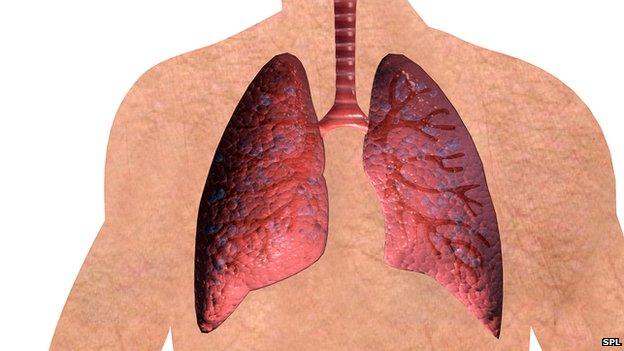Early lung cancer diagnosis saved study test volunteer
- Published
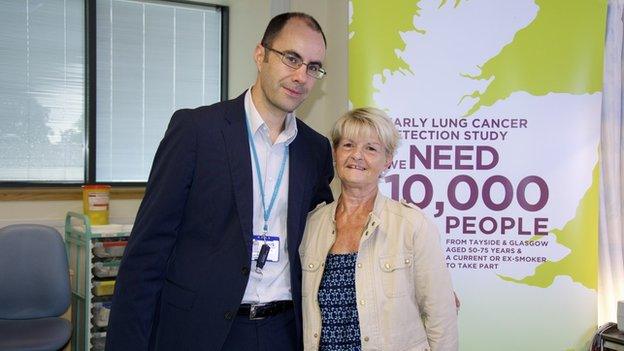
Mrs Dolan's lung cancer was diagnosed early enough for her to undergo surgery
A Dundee woman discovered she had lung cancer after volunteering in an experimental blood test.
Shirley Dolan gave a blood sample as part of a Dundee University study pioneering early detection techniques for the disease.
The 58-year-old former smoker "never even had a cough" before she was diagnosed and underwent surgery.
It is hoped the ongoing study will help detect the often-deadly cancer at an earlier and more treatable stage.
The Early Lung Cancer Detection Study aims to recruit 10,000 participants from the Tayside and Greater Glasgow and Clyde areas.
It is the world's largest clinical research study looking into using blood tests in the early detection of lung cancer, which presents few symptoms and often is not diagnosed until tumours have spread so far that around nine out of ten cases are inoperable.
Mrs Dolan had no idea that her lung was harbouring a tumour when she signed up for the study.
Had it remained undetected for much longer, her chances of survival would have been "radically reduced".
"Without the test, we would never have known, and with lung cancer, by the time people feel symptoms, it is usually too late," she said.
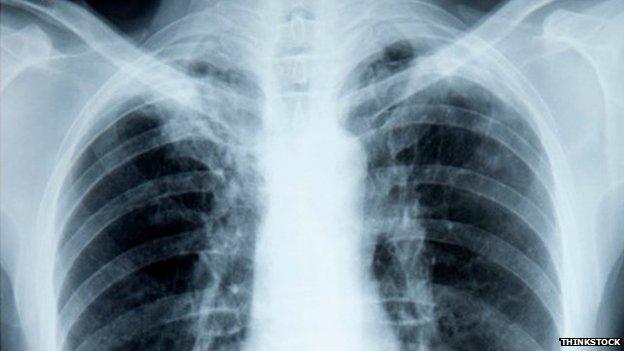
Lung cancer presents few symptoms and often is not diagnosed until tumours have already spread
Imaging revealed the presence of Mrs Dolan's tumour early enough for surgical removal.
After being diagnosed in May, she had surgery in July, and hopes to be back at work by October.
The study is a collaboration between researchers at the Universities of Dundee, Glasgow and Nottingham, NHS Scotland and the Tayside Clinical Trials Unit.
'Few symptoms'
Dr Stuart Schembri, co-chief investigator on the study, said: "Lung cancer kills more people than any other cancer, with 5,000 people in Scotland dying from the disease every year.
"There are often few symptoms until the cancer has been growing for a long time and perhaps spread. So of every ten people found to have lung cancer, nine are unfortunately inoperable."
The study uses a new blood test called EarlyCDT-Lung, which it is hoped will pick up lung cancer at a stage when it can be promptly treated or cured.
Blood samples are taken in Dundee and Glasgow and sent to the USA for testing to identify certain proteins the body produces in response to tumours.
Dr Schembri anticipates hundreds of people could be diagnosed during the trial period alone.
The study is continuing to recruit participants in Tayside and Glasgow until January 2015.
- Published11 September 2014
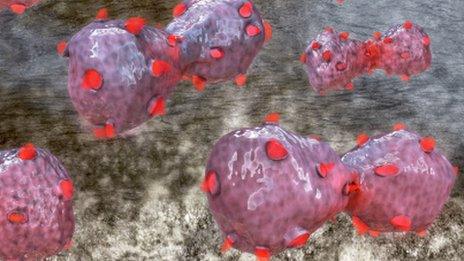
- Published10 September 2014
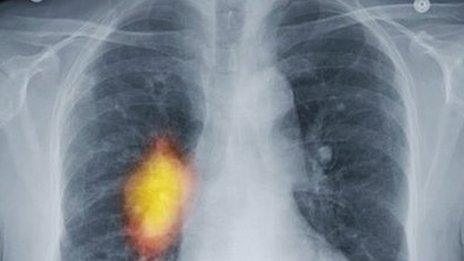
- Published4 April 2014
